Sean S. Yi
Graph Transformer Networks: Learning Meta-path Graphs to Improve GNNs
Jun 11, 2021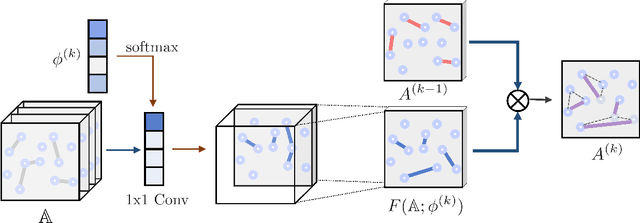

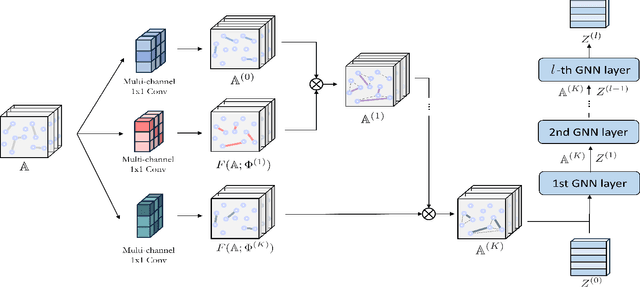
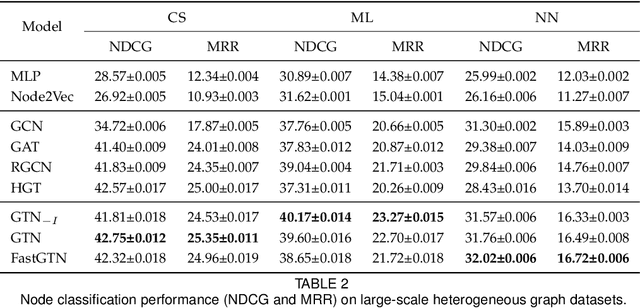
Abstract:Graph Neural Networks (GNNs) have been widely applied to various fields due to their powerful representations of graph-structured data. Despite the success of GNNs, most existing GNNs are designed to learn node representations on the fixed and homogeneous graphs. The limitations especially become problematic when learning representations on a misspecified graph or a heterogeneous graph that consists of various types of nodes and edges. To address this limitations, we propose Graph Transformer Networks (GTNs) that are capable of generating new graph structures, which preclude noisy connections and include useful connections (e.g., meta-paths) for tasks, while learning effective node representations on the new graphs in an end-to-end fashion. We further propose enhanced version of GTNs, Fast Graph Transformer Networks (FastGTNs), that improve scalability of graph transformations. Compared to GTNs, FastGTNs are 230x faster and use 100x less memory while allowing the identical graph transformations as GTNs. In addition, we extend graph transformations to the semantic proximity of nodes allowing non-local operations beyond meta-paths. Extensive experiments on both homogeneous graphs and heterogeneous graphs show that GTNs and FastGTNs with non-local operations achieve the state-of-the-art performance for node classification tasks. The code is available: https://github.com/seongjunyun/Graph_Transformer_Networks
Answering Questions on COVID-19 in Real-Time
Jun 29, 2020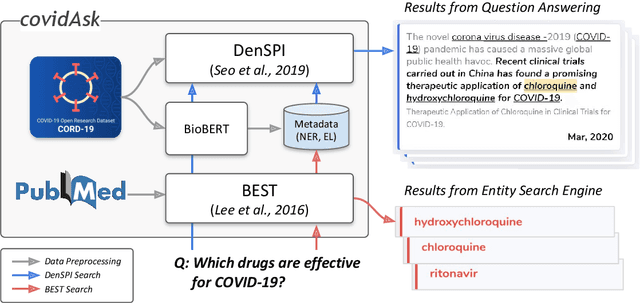
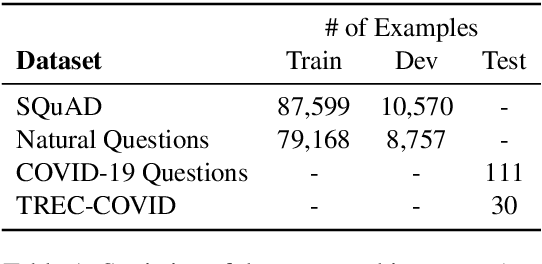
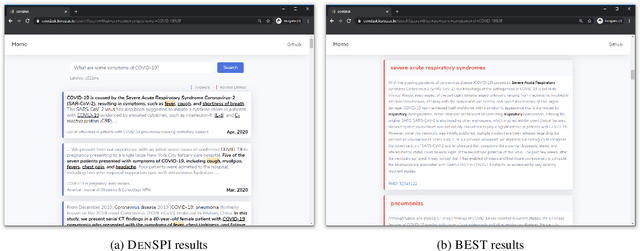

Abstract:The recent outbreak of the novel coronavirus is wreaking havoc on the world and researchers are struggling to effectively combat it. One reason why the fight is difficult is due to the lack of information and knowledge. In this work, we outline our effort to contribute to shrinking this knowledge vacuum by creating covidAsk, a question answering (QA) system that combines biomedical text mining and QA techniques to provide answers to questions in real-time. Our system leverages both supervised and unsupervised approaches to provide informative answers using DenSPI (Seo et al., 2019) and BEST (Lee et al., 2016). Evaluation of covidAsk is carried out by using a manually created dataset called COVID-19 Questions which is based on facts about COVID-19. We hope our system will be able to aid researchers in their search for knowledge and information not only for COVID-19 but for future pandemics as well.
 Add to Chrome
Add to Chrome Add to Firefox
Add to Firefox Add to Edge
Add to Edge